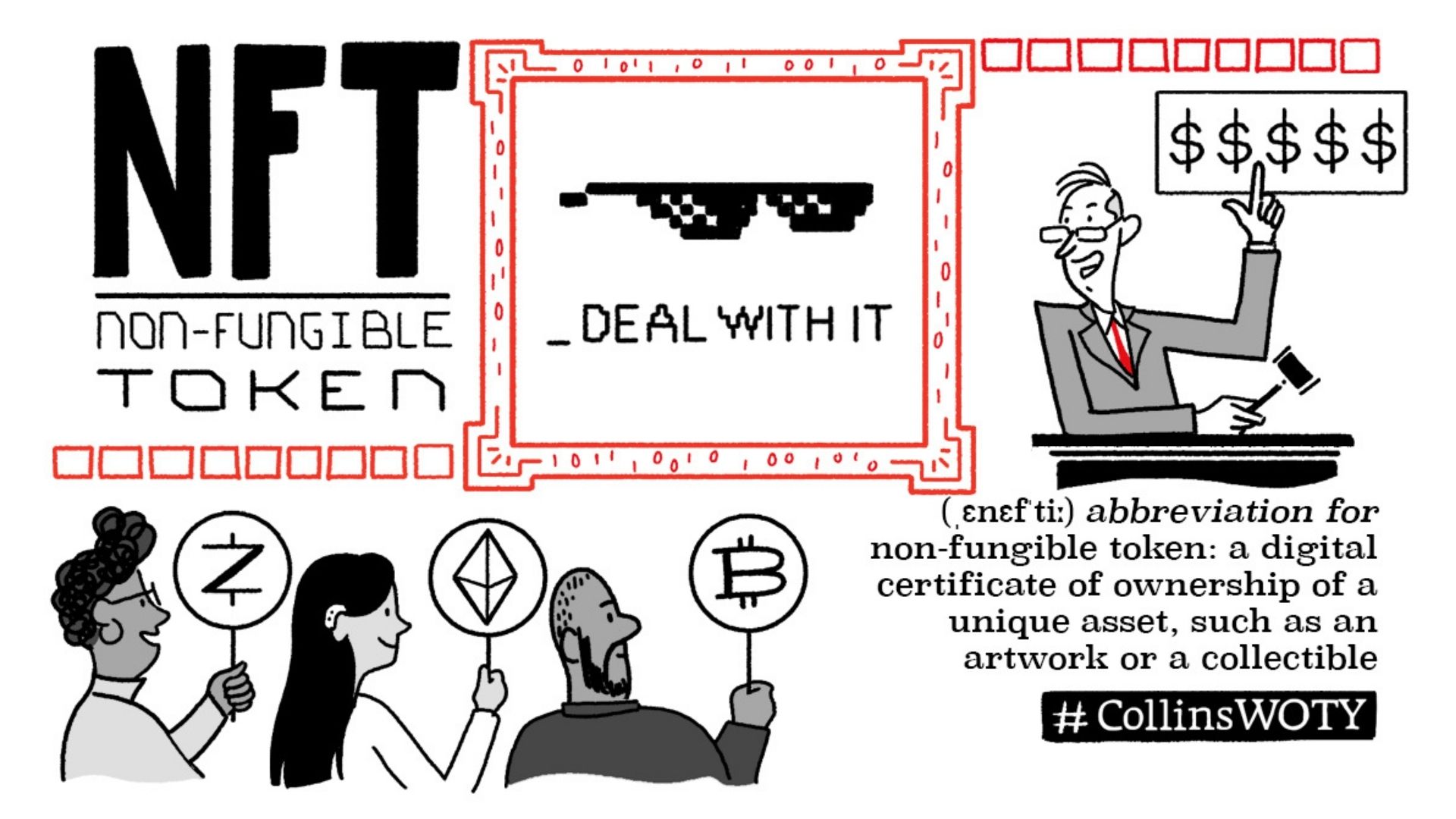You are viewing your 1 free article this month. Login to read more articles.
'NFT' named Word of the Year by Collins Dictionary
"NFT", the abbreviation of "non-fungible token", has been crowned Collins’ Word of the Year 2021 with "pingdemic" and "Regencycore" also making the list of new additions to the dictionary.
NFT is the unique digital identifier that records ownership of a digital asset, which can be a picture, a video, a piece of music, or even a tweet. HarperCollins said the word has entered the mainstream and "seen millions spent on the most sought-after images and videos". The most valuable NFT, by digital artist Beeple, was sold for £50.3m at Christie’s in March. Recently a group of YA authors backtracked over plans for a NFT story following an online backlash against the project.
The abbreviation of non-fungible token was chosen as word of the year by Collins lexiographers because it demonstrates a "unique technicolour collision of art, technology and commerce" that has "broken through the Covid noise’ to become ubiquitous throughout the year". It is one of three tech-based words to make Collins’ longer list of 10 words of the year and has seen a 11,273% rise in usage in 2021.
Another tech-related word included in Collins’ longer list of 10 words of the year is "crypto", the short form of "cryptocurrency", such as Bitcoin, Ethereum and others, which has seen an increase of 468% year on year. "Metaverse" describes a three-dimensional virtual world, and was coined by author Neal Stephenson in his 1992 novel Snow Crash (Penguin). Usage has increased twelvefold since 2020, as it becomes a phrase to describe the evolution of the internet and human interaction with virtual domains.
"Lockdown" was the 2020 Word of the Year and the influence of the Covid pandemic on the language remains strong, with three related words making this year’s list: "pingdemic" is a new word for this year and emerged when people using an NHS app were "pinged" to self-isolate following contact with someone with a confirmed case, causing disruption around the country. "Hybrid working" denotes the mixture of commuting to a workplace and working from home that has become the norm for countless workers and companies; and "double-vaxxed" refers to anyone who has received two doses of one of the Covid vaccines developed since the start of the pandemic.
Climate change inspired two recent words of the year in "single-use" (2018) and "climate strike" (2019), and remains a key area of concern. This year, the term "climate anxiety" has made the list, reflecting people’s growing concerns about climate change and perceived lack of action to tackle it. Ongoing conversations over gender and the representation of trans and non-binary people has led to a rise in usage of "neopronouns" (such as "xe/xer", "thon" and "fae").
Two words also new to the Collins Corpus this year complete this year’s list. "Regencycore" relates to the recent influence shows such as "Bridgerton" have had on fans and fashion, and "cheugy" is a slang term used to describe, and dismiss, anything seen as hopelessly uncool or unfashionable.
Alex Beecroft, m.d of Collins Learning said: "It’s unusual for an abbreviation to experience such a meteoric rise in usage, but the data we have from the Collins Corpus reflects the remarkable ascendancy of the NFT in 2021. Its unique technicolour collision of art, technology, and commerce has broken through the Covid noise with dramatic effect. NFTs seem to be everywhere, from the arts sections to the financial pages and in galleries and auction houses and across social media platforms.
"Whether the NFT will have a lasting influence is yet to be determined, but its sudden presence in conversations around the world makes it very clearly our Word of the Year."




















